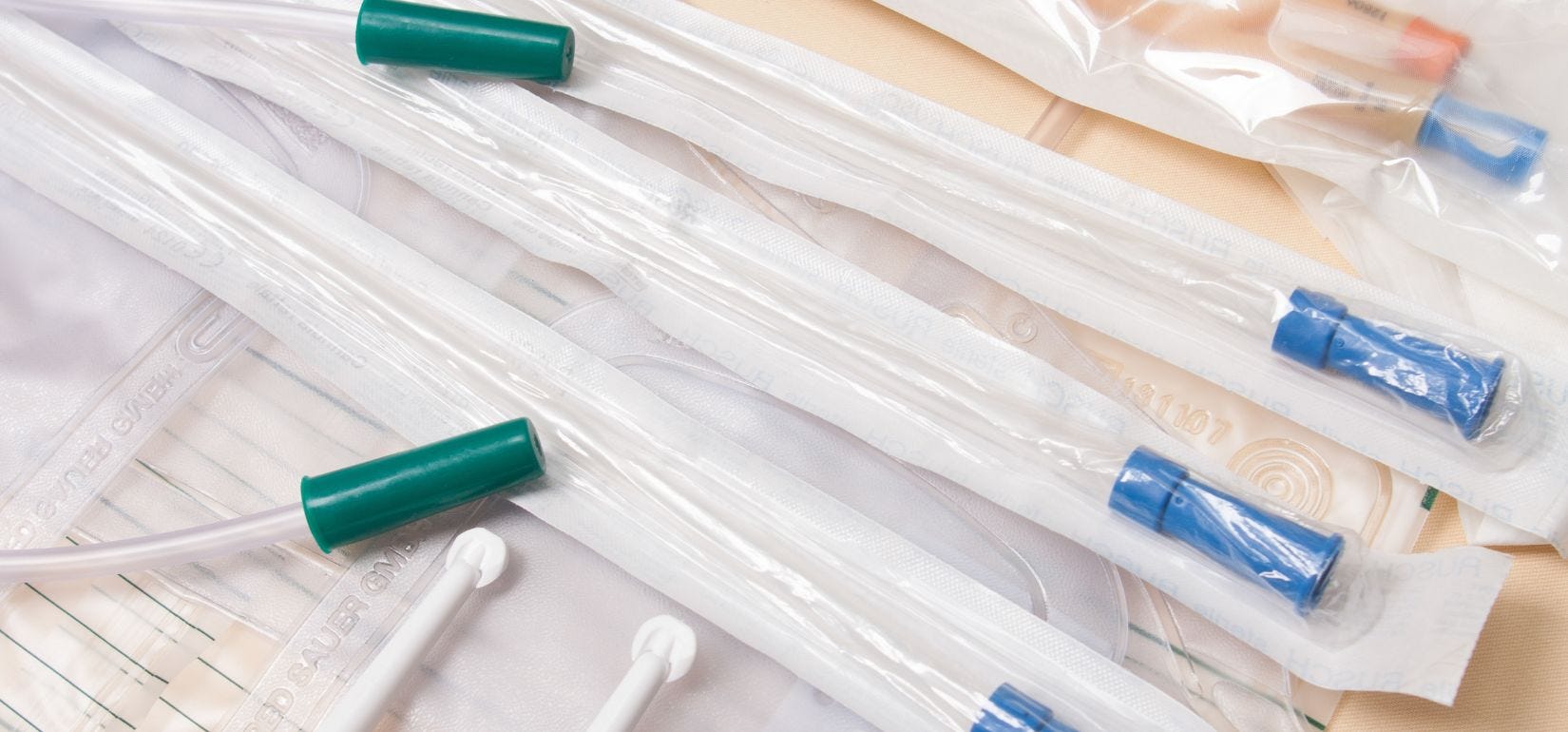Key Takeaways:
- Anuria is an absence of urine production and is a medical emergency that requires immediate attention due to possible life-threatening complications.
- A variety of underlying factors, including diabetes, heart failure, kidney disease, and blockages, can cause anuria.
- It's essential to seek medical help right away if you believe you may be experiencing anuria, as it can be life-threatening.
Are you noticing a significant decrease in your urine output? Or have you noticed you're not urinating at all?
This can be alarming, and rightfully so. Anuria, the medical term for this condition, indicates that your kidneys might not function properly.
In this post, we'll break down everything you need to know about anuria, from its causes and symptoms to diagnosis and treatment.
What Does Anuria Mean?
Anuria is a condition that occurs when your body doesn't produce enough urine. With anuria, your kidneys either don't make enough pee or have a blockage in your urinary system. Anuria is the most serious form of oliguria (low urine output).
Oliguria occurs when you produce less than two cups of urine every 24 hours.
Anuria can be a life-threatening condition, and it's commonly correlated with kidney failure or chronic kidney disease, shock, blood loss, or heart conditions.
Because the inability to remove toxins and waste products from your body can be fatal, you should contact your healthcare provider or emergency services immediately if you believe you're experiencing anuria.
What Are the Causes of Anuria?
Anuria is caused by your kidneys not receiving the proper amount of fluid or blood. Common causes of the condition may include:
- Diabetes: Diabetes can cause diabetic ketoacidosis, causing acute kidney failure and anuria.
- High blood pressure: High blood pressure may damage arteries around your kidneys, leading to issues with kidney function and anuria.
- Acute kidney injury (AKI): AKI occurs when a sudden decrease in kidney function occurs. This can lead to anuria.
- Kidney failure: Kidney failure may result in less urine production, leading to anuria.
- Chronic kidney disease: Chronic kidney disease occurs as part of kidney failure, which may cause anuria.
- Kidney stones: Kidney stones may block urine output, causing anuria.
- Kidney tumors: Like kidney stones, kidney tumors may block urine output, leading to anuria.
- Heart failure: During heart failure, the heart can’t pump enough blood which leads to decreased renal filtration leading to anuria.
- Liver failure: Liver failure causes systemic blood dilation leading to low blood volume and decreased renal filtration leading to anuria.
- Dehydration: Dehydration causes decreased blood volume leading to decreased kidney perfusion to conserve water leading to decreased urine output and eventually anuria.
- Shock: Shock causes severe hypotension that leads to fluid conservation and decreased kidney filtration, basically shutting down the kidneys producing urine, leading to anuria.
- Bacterial infections: Typically anuria would be seen with systemic bacteria infections through hemodynamic changes, direct damage to the kidneys, toxin release, or obstructive reasons.
- Blood loss: Typically anuria would be seen with severe blood loss (30-40% of total blood volume of an individual) and occurs secondary to decreased circulating blood volume which causes decreased kidney filtration.
- Enlarged prostate: Typically seen as outlet obstruction anuria, an enlarged prostate compresses the urethra making it difficult to empty the bladder and inability to pass urine and/or leading to urine backing up to the ureters and kidneys which cause cause kidney damage and decreased kidney filtration leading to anuria.
Check your coverage for 100% free incontinence products now!
Check your coverage for 100% free incontinence products now!
What Are the Symptoms of Anuria?
The main symptom of anuria is not producing urine or less than two cups of urine every 24 hours.
However, you may experience other symptoms related to underlying conditions causing anuria, such as symptoms related to kidney disease, heart failure, enlarged prostate, and diabetes.
When Should You See Your Doctor About Anuria?
If you believe you're experiencing anuria, you should see a healthcare professional or seek emergency help immediately. Anuria can be a life-threatening condition, so it's critical that you seek help as soon as possible.
How Is Anuria Diagnosed?
Your healthcare provider will most likely ask you a few questions about your bathroom habits, including:
- How much fluid you've had to drink.
- How often you go to the bathroom and how much you pee.
- If you've had blood in your urine.
Your provider may also perform specific tests on your kidneys to check kidney function, including:
- CT scan or MRI.
- Blood test.
- Urine test.
- Biopsy
- Renal scan.
- Kidney function test.
How Is Anuria Treated?
The treatment for anuria will depend on the underlying cause in your specific case.
- Kidney disease: Anuria caused by kidney disease may be treated with dialysis. A kidney transplant may also be necessary.
- Kidney stones or tumors: Anuria caused by kidney stones or tumors may be treated by removing the blockages using surgery or other cancer treatments. Your provider may also prescribe catheters to help drain urine.
- Diabetes: Anuria caused by diabetes may be treated by lifestyle changes, like exercise and maintaining a healthy diet.
Talk with your provider to find out the best treatment for your underlying condition and anuria.
References
Cleveland Clinic. (2021, September 29). Anuria: What It Is, Causes, Symptoms & Treatment. Cleveland Clinic. https://my.clevelandclinic.org/health/diseases/21890-anuria
Anuria: Definition, causes, and symptoms. (2018, January 19). www.medicalnewstoday.com. https://www.medicalnewstoday.com/articles/320663#signs-and-symptoms
Cleveland Clinic. (2021, December 28). Oliguria (Low Urine Output): Causes, Symptoms & Treatment. Cleveland Clinic. https://my.clevelandclinic.org/health/diseases/22271-oliguria
Chen J, Aronowitz P. Congestive Heart Failure. Med Clin North Am. 2022 May;106(3):447-458. doi: 10.1016/j.mcna.2021.12.002. Epub 2022 Apr 4. PMID: 35491065.
Esprit DH, Koratala A, Chornyy V, Wingo CS. Obstructive Nephropathy Without Hydronephrosis: Suspicion Is the Key. Urology. 2017 Mar;101:e9-e10. doi: 10.1016/j.urology.2016.11.041. Epub 2016 Dec 21. PMID: 28011273.
Webster AC, Nagler EV, Morton RL, Masson P. Chronic Kidney Disease. Lancet. 2017 Mar 25;389(10075):1238-1252. doi: 10.1016/S0140-6736(16)32064-5. Epub 2016 Nov 23. PMID: 27887750.
Levey AS, James MT. Acute Kidney Injury. Ann Intern Med. 2017 Nov 7;167(9):ITC66-ITC80. doi: 10.7326/AITC201711070. Erratum in: Ann Intern Med. 2018 Jan 2;168(1):84. doi: 10.7326/L17-0682. PMID: 29114754.
Disclaimer
Information provided on the Aeroflow Urology blog is not intended as a substitute for medical advice or care from a healthcare professional. Aeroflow recommends consulting your healthcare provider if you are experiencing medical issues relating to incontinence.













